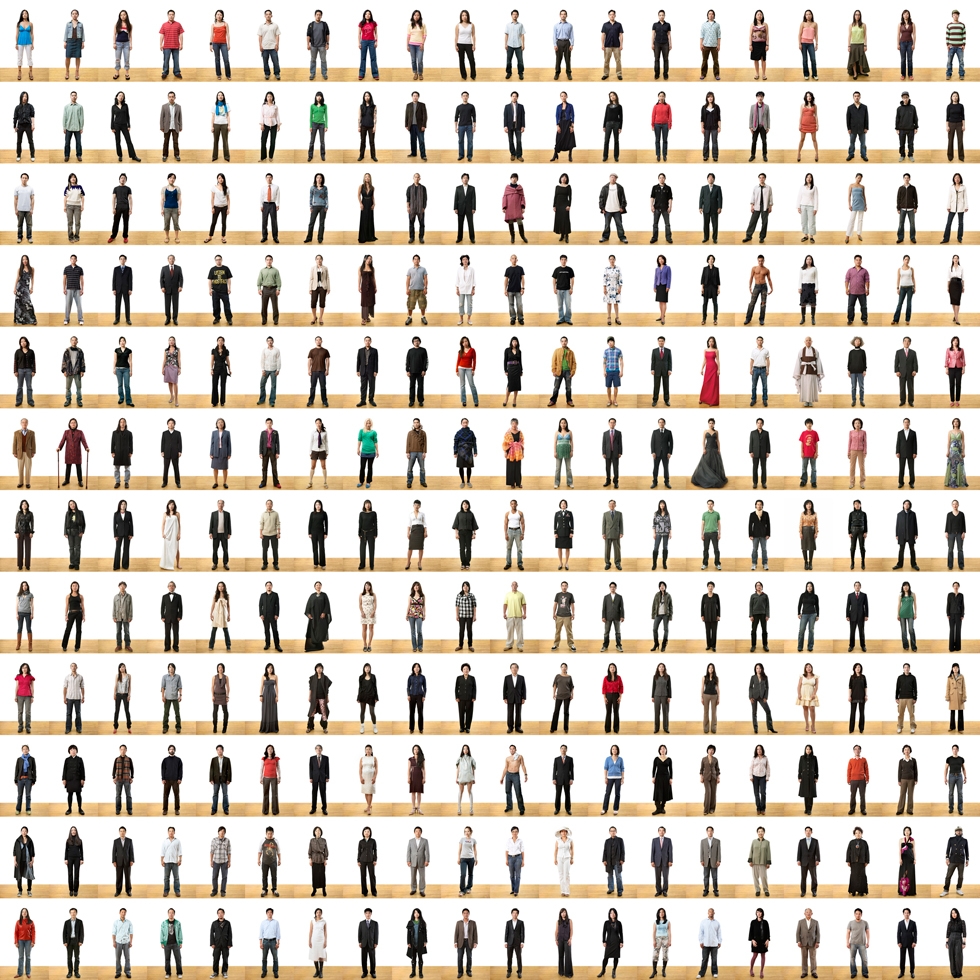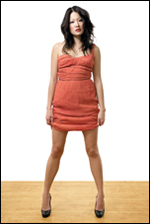CYJO

About the Artist
Born in Seoul, raised in the United States, and now based principally in Beijing, CYJO (born 1974) is a self-described Kyopo—the Korean term for ethnic Koreans living in other countries. Just one-and-a-half years old when she immigrated with her family to the United States in 1976, CYJO grew up in suburban Maryland and later studied at the University of Maryland and the Fashion Institute of Technology (FIT) in New York. She continued her education in Italy at the Istituto Politecnico Internazionale della Moda before returning to the States, where she earned her degree in fashion design from FIT in 1997.
After working initially as a stylist, CYJO moved behind the camera in 2002 to launch her career as a fine-art photographer. Since that time, her subjects have included a wide range of individuals—from performing artists to politicians—and her photographs have been featured in numerous publications both in the United States and abroad.
Beginning with a single portrait in 2004, CYJO’s The KYOPO Project has grown organically as new subjects have encouraged other members of the Kyopo community to pose for her camera and share their stories of identity.
The texts that accompany the portraits are derived from interviews that CYJO conducted with the sitters.
Artist Statement
Most of my portraiture thus far is related to ethnography in that I am using it to examine issues of individual identity in relation to both ancestral heritage and contemporary life. The KYOPO Project is a photographic and textual exploration of immigration and identity through the lens of Korean ancestry.
In this work, more than two hundred people—mostly living in America—consider their relationships with their ancestral culture and the other cultures they embody through citizenship/residence or life experiences. I enjoy capturing both the silent, direct, and informational physiognomy of each individual and the textual portraits that are obtained through interviews.
Selected Works from The KYOPO Project
 |
Daniel Dae Kim by CYJO There was a time when my biggest wish was to be as “American” as I could. When looking different first became a source of rejection, in some ways I rejected my heritage. But now that I’ve grown and started to raise my own family, I feel an undeniable sense of gratitude to my parents and the values they worked so hard to instill in me, values shaped by a country half a world away. I’ll always be grateful to America for being a place where part of what it means to be a proud American is the ability to be openly proud of being Korean. |
 |
Maggie Kim by CYJO My Korean American experience: Eat Kimchi. Take shoes off at an American classmate’s house and get funny looks. Be a faux-punk high school rebel. Learn to pine after blue-eyed, white boys. Aspire to be Madonna. Not allowed to just “hang out” at the mall. Be the smartest kid in school. Never have a boyfriend. Go to an Ivy League university. . . . The Big Apple calls. Yellow fever does exist! Learn Korean again and for real. . . . Forgive parents for everything they didn’t know about being American. Thank parents for everything they knew about being Korean. |
 |
Chang Rae Lee by CYJO I lean towards the Korean culture the way a plant has a certain tropism towards the sun; but it's not the only resource. Most of the time, I feel fully American because I don't walk around looking at myself. Although the instances are rare, it's surprising when people react to me as if they're seeing a foreigner. The Korea that I know is the Korea my parents brought over in 1968, which doesn't exist anymore. Their sense of value, culture and self were hermetically sealed and brought with them in boxes. |
Listen to an Interview with CYJO
Interview by Jasmine Fernandez, The Sarah and Francis Sogi Smithsonian/Hawai'i Fellow, Smithsonian Asian Pacific American Program, September 16, 2011.
